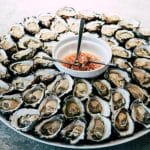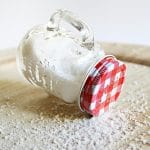Foods to Avoid After 60: A Guide from East Ridge Village
At East Ridge Village, we care deeply about the health and wellbeing of our residents. As we age, our nutritional needs change, and certain foods can become more harmful than helpful. That’s why we’ve put together this guide—rooted in the latest scientific findings—to help seniors (and their families) make informed, healthier choices.

1) Unheated deli meats & unpasteurized soft cheeses
Older adults are at higher risk for serious illness from Listeria. Skip cold deli meats (unless reheated to steaming hot) and unpasteurized soft cheeses. Choose freshly cooked meats, reheated deli slices, and pasteurized cheeses. CDC+1

2) Raw oysters and other raw/undercooked seafood
Miami and Cutler Bay residents love seafood—but raw oysters and undercooked fish can carry harmful bacteria. At East Ridge Village, we encourage enjoying seafood fully cooked to protect your health. CDC+1

3) High-sodium processed foods (soups, frozen meals, salty snacks)
Too much sodium raises blood pressure. Heart groups recommend keeping sodium as low as possible—ideally around 1,500 mg/day for many adults—and emphasize lifestyle steps like cutting salt to manage hypertension. Choose low-sodium versions and season with herbs. www.heart.org AHA Journals

4) Processed meats (bacon, hot dogs, sausages, deli meats)
Processed meat is classified by the WHO/IARC as carcinogenic (linked most strongly to colorectal cancer). Keep these as rare treats and lean on poultry, fish, beans, and lentils instead. World Health Organization

5) Ultra-processed foods (UPFs)
From packaged snack cakes to instant noodles, ultra-processed foods have been tied to higher risk of chronic disease. Our culinary team works hard to offer minimally processed, fresh meals every day—helping residents fuel their bodies with the nutrients they need. BMJ PMC

6) Sugary drinks & sweets
Added sugars drive weight gain and metabolic issues. Federal guidelines recommend keeping added sugar under 10% of daily calories; many people exceed this mostly via beverages. Swap soda for water or sparkling water with citrus. (On brain health, late-life sugary drink intake shows mixed evidence; it’s still smart to limit for overall health.) CDC+1 JAMA Network

7) Alcohol (especially if you have high blood pressure)
Alcohol can raise blood pressure and interfere with many medications. Recent heart-health guidance puts stronger emphasis on limiting alcohol while tackling hypertension—many people do best by avoiding it. Talk with your clinician about what’s right for you. AHA Journals

8) Grapefruit (and Seville oranges) if you take certain meds
Grapefruit can dangerously boost blood levels of several drugs (notably some statins and blood-pressure meds). If you’re on these medications, avoid grapefruit unless your prescriber/pharmacist says it’s okay. U.S. Food and Drug Administration

9) “Salt substitutes” with potassium chloride—only if your care team clears it
Potassium-based salt substitutes can help some people lower blood pressure, but they can be risky for others (e.g., kidney disease or certain heart/blood-pressure medicines). Ask your clinician before using them. National Kidney Foundation

10) High-mercury fish (limit/avoid)
Most fish are healthy, but a few species carry high mercury (e.g., king mackerel, marlin, shark, swordfish, bigeye tuna, orange roughy, Gulf tilefish). Choose lower-mercury fish like salmon, sardines, pollock, or trout. U.S. Food and Drug Administration
Smart swaps that make a difference
Instead of: cold deli meats → Try: reheated slices or rotisserie chicken (skin off). CDC
Instead of: salty canned soup → Try: low-sodium versions + herbs. www.heart.org
Instead of: soda → Try: water/sparkling water + lemon/lime. CDC
Instead of: bacon/hot dogs → Try: beans, lentils, fish, or poultry. World Health Organization
Instead of: high-mercury fish → Try: salmon, sardines, trout. U.S. Food and Drug Administration
A quick word on personalization
If you take warfarin, keep your vitamin K intake (leafy greens, etc.) consistent—don’t yo-yo up and down from week to week. If you have kidney disease or take ACE inhibitors/ARBs, get medical advice before using potassium-based salt substitutes. And always check for grapefruit–drug interactions. (Office of Dietary Supplements) (National Kidney Foundation) (U.S. Food and Drug Administration)
Bottom Line
At East Ridge Village, we believe good nutrition is a cornerstone of healthy aging. Our chefs and wellness team continually adapt menus and programs to support the changing needs of older adults, making sure every meal is not only safe—but also flavorful and enjoyable.
Small changes, like swapping processed foods for fresh alternatives or limiting sugary drinks, can make a big difference. By making smart choices today, our residents enjoy more energy, better health, and vibrant living every day.
